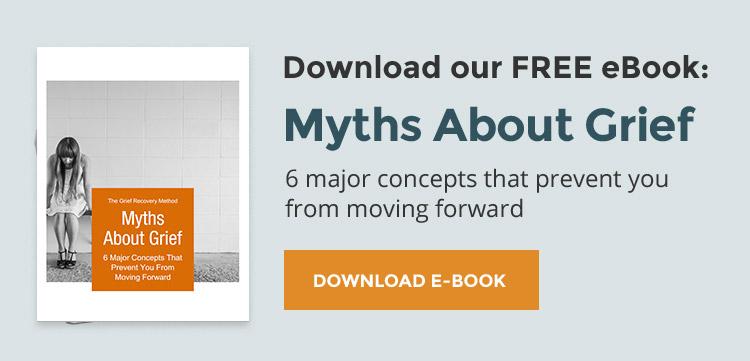
Experiencing the death of someone you love and care about is painful. Experiencing the death of someone you less than love can be painful too. There are almost always undelivered emotional communications with a person who died, and deaths during the COVID-19 pandemic are no different.
Think back to someone you know who died.
Were there things you wish had ended differently, better or more? Do you wish your last communication with them would have been different, or were there things you wish you could have changed in the relationship?
That's normal and that's unresolved grief.
Sometimes when people die you get the chance to say goodbye. Many times a sudden or unexpected death robs you of that opportunity. Even when you do get to say bye there still can be things that you wish you would have said, situations you wish were different, or more you wish you could have done while the person was still alive.
How many times have you heard someone say,
“I wish I had a chance to tell him I love him just one last time.”?
With COVID-19 people might not be able to say goodbye to dying friends and family members in person or attend funerals due to quarantining and social distancing guidelines.
The Grief Recovery Institute doesn’t compare losses because comparing losses minimizes grief. All grief is experienced at 100%. But we do want to offer solutions if someone you know has died, or is dying, during the Coronavirus pandemic, and you can’t attend a memorial in person.
There are some alternative ways to have conclusionary rituals.
Why are conclusionary rituals important?
- They allow you to say goodbye to the physical person.
- They allow you to say goodbye to your unique individual relationship with the person who died.
- They create therapeutic value (when done correctly).
How to make sure a funeral or memorial has therapeutic value:
- Allow guests and speakers to openly express their feelings without analysis, criticism, or judgment.
- The service must create an accurate memory picture of the person who died.
Want to know how to create an accurate memory picture?
Simply look at the most important areas of someone’s life:
- Family
- Religion
- Career
- Community activities
- Hobbies
- Friends
When a memorial doesn’t focus on these things it can be confusing.
Have you ever been to a religious funeral for someone who wasn't religious?
Or a military funeral for someone who hasn’t been in, or spoken of their military service in years?
Have you ever gone to a memorial for someone who watched every single football game on TV, but there was no mention of it during the service?
That doesn’t create an accurate memory picture, which is vital to the funeral or memorial having therapeutic value.
So now that you know how to create an accurate memory picture, how can you “gather” with today's current restrictions?
Some people have found a benefit in doing a live event on social media or video chat services.
Others have done parking services (think drive-in movie) where attendees stay in their cars while other people speak from outside their vehicles.
Of course, these options aren’t ideal. Who do you hug when the tears are streaming down your face? A car window or computer screen can feel like you’re a million miles apart, but it can also help to have a conclusionary ritual to honor the person who has died.
Memorials and funerals are important. SO IS GETTING EMOTIONALLY COMPLETE WITH WHO DIED, which is why the Grief Recovery Method is so important. A funeral alone won’t help you recover from grief. But it’s never too late to recover from a loss.
“Many people labor under the misapprehension that once someone has died there is no way they can complete any unfinished emotional business. Happily, this is not true, or they would have to stay incomplete forever. The Grief Recovery Method helps grievers identify and complete the undelivered emotional communications that keep them tied to past painful experiences with people who have died or with relationships that have ended or changed. This process obviously does not require that the person we are incomplete with be a living or willing participant.” - Russell Friedman
There are so many harmful myths about grief. Download our ebook to learn more about them.
Here are more resources of COVID-19 and grief to share with your friends, family, and colleagues:
Photo: 123rf.com
























Comments
Lay Lin Cheah, M.Counselling
Thank you so much for this extremely useful blog. The Covid19 pandemic is making such a deep impact on the way we conduct funeral rituals and create that memory picture of our loved ones and most of all how we grieve when we do not have the usual practical and emotional support from family ,friends and even professionals.
Add new comment